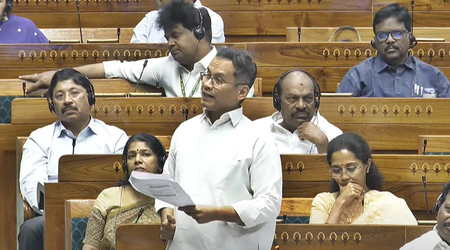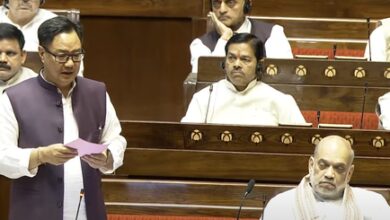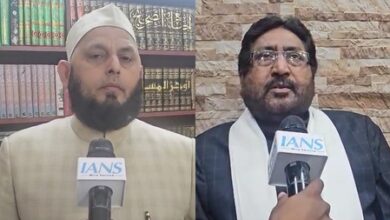Waqf Bill weakens Constitution, defames minorities, divides society: Gaurav Gogoi (Ld)

New Delhi, April 2 (IANS) As Parliament debated the contentious Waqf Amendment Bill, 2025, on Wednesday, deputy leader of Opposition in the Lok Sabha Gaurav Gogoi came down heavily on the government.
He delivered a detailed critique of the Waqf Amendment Bill 2025. He began by expressing concerns over the government’s intentions, stating, “Today, they have their eyes on the land of a particular community; tomorrow, they will target the land of other minorities in society.”
While acknowledging the need for amendments, Gogoi emphasised that such changes should strengthen the Bill rather than exacerbate problems and disputes, which he argued would result from the proposed amendments.
Gogoi accused the government of attempting to create chaos by enabling cases to be filed across the country, thereby disrupting the “atmosphere of brotherhood.”
He highlighted the existing provisions that allow the Waqf Board to make rules with the state government’s permission, which the proposed amendments seek to eliminate. He argued that this move undermines the authority of state governments, which currently hold the power to make rules, including those favouring the survey commissioner.
“You want to remove everything and call these amendments,” he remarked.
The member lambasted the government on the provision that seemingly diminishes the role of the High Court following tribunal orders. Gogoi clarified that the High Court retains the authority to review and alter decisions to address injustices. He also pointed out that the Centre already has the right to issue instructions to state boards, dismissing claims that the current law is inadequate.
He accused the government of spreading misconceptions, particularly the claim that the existing law is against women.
Gaurav Gogoi expressed concerns about the secular fabric of the nation, highlighting that the government appeared to advocate for a provision allowing only individuals who had practiced Islam for five years to create Waqf.
He contrasted this with the earlier framework, which permitted any person to establish a Waqf, emphasising that this inclusivity reflected India’s secular structure. Gogoi also pointed out that the requirement for two women on the Waqf Board had always been in place, including provisions for widows and divorcees.
He accused the government of spreading misinformation by suggesting that the current Act discriminates against women. Gogoi also criticized the reduction of Waqf revenue from 7 per cent to 5 per cent, questioning the government’s commitment to the proper functioning and modernization of the Waqf Board and Tribunal. He proposed increasing the revenue to 11 per cent to ensure their effective operation.
He raised further concerns about the government’s approach, questioning whether they would demand certificates from individuals of other religions to create Waqf.
He accused the government of dragging religion into the matter, stating, “Why are they asking for proof of one’s faith? This Bill is an attack on the basic structure of the Constitution.”
Gogoi dismissed the government’s claims of detailed discussions before introducing the Bill as misleading.
He demanded transparency regarding the five meetings held on the matter, asserting that none of them mentioned the need for a new Waqf Bill.
He questioned the origins of the Bill, given that the ministry had not considered it until 2023.
He concluded by accusing the government of having four objectives through the Bill: to weaken the Constitution, spread confusion, defame minorities, and divide Indian society.
He described the Bill as an attack on the federal structure and the basic principles of the Constitution. Referring to recent events, he remarked, “A few weeks ago, people celebrated Eid, but their double-engine government did not allow them to offer Namaz (prayer) on the road.”
Gogoi’s speech underscored his party’s commitment to the Constitution of India, which he described as the guiding principle in matters such as the Ayodhya Ram Temple and the Waqf Bill. He reiterated the Constitution’s promise of social, religious, and political justice and equality for all citizens.
–IANS
sktr/dpb




